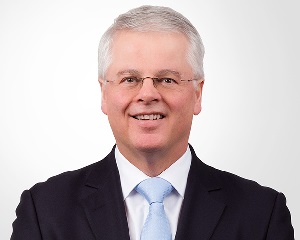Companies have adjusted to the new environment of living through a pandemic, but how has the crisis impacted the private capital market and what is the outlook for 2022 and beyond?
Momentum from the second half of 2020 carried through into 2021, buoyed by accommodating central bank policy, cheap credit and record amounts of dry powder with deal-making activity breaking new records, writes Geoff Cook, chair of law firm-led professional services business Mourant Consulting.
Reports by Dechert and PitchBook data confirm a stellar year in the US with deals topping out at over $1trn (£763bn, €918bn) and a record 8,600 transactions completed, quickly laying to rest the uncertainties that had characterised the early phases of the pandemic. In Europe, the Middle East and Asia (Emea), the picture was similar with 1,839 PE deals totaling more than $390bn, as of Q3 2021, the busiest period for five years.
Funds surge to a new high
The Channel Islands’ private capital structuring and administration centres saw correspondingly strong business flows, affirming a continuing attraction to the private capital industry. Total funds under administration scaled new highs as of September 2021, with an increase in Guernsey of £17.4bn (6.4%), and near neighbour Jersey also saw a rise of £3.8bn.
The private capital story was similarly strong in the Cayman Islands, traditionally a leader in the hedge fund sector, and the US and Asia-facing private equity markets. A combination of factors including the US-led demand for Spacs, high-performing hedge funds (the top 20 managers made $65.4bn in gains) and the record-breaking fund raising environment for private equity saw the number of funds surge to new highs.
Here at Mourant, we saw no let-up in the flow of instructions with momentum carrying through into 2022. Cayman-regulated fund numbers, whether ‘mega-funds’ or funds for new and emerging managers are soaring.
Key themes include the formation of Cayman Spacs, a large volume of secondary transactions (including general partner (GP) led fund restructurings), GP minority stake transactions (in which large fund sponsors make direct equity investments in third-party fund managers), many clients raising distressed debt and credit opportunities funds in the wake of the pandemic, and increased popularity of direct lending strategies – we are increasingly seeing credit funds providing financing on corporate transactions.
In the Channel Islands, fundraising and deal activity have also been buoyant in the private equity and venture capital spheres, across a wide variety of asset types but with technology, sustainable investment and renewables proving popular themes. Real estate deal activity (mainly UK office, retail and logistics deals) has also risen sharply in 2021, as have transactions funded by our distressed debt and credit opportunities fund clients. We see these trends continuing through 2022 and beyond.
Active participants in private capital
The finely honed skills developed by private capital players over the last two decades have seen a resilient response to the pandemic and an agile, fleet-footed grasp of the recovery opportunities that have emerged. The industry will encounter headwinds in 2022; the return of inflation, less accommodative central bank policy, rising interest rates, the prospect of market corrections, and increased geopolitical tensions, to name just a few.

But investor confidence remains high – private capital has delivered exceptional returns in both good and bad times for more than two decades since the great financial crisis. Going forward the search for return is likely to see an even more significant share of the available investor funds attracted to private capital. A trend buttressed by the giant ($495.3bn) Californian Public Employees Retirement System (Calpers), as it moves to set new asset allocation targets to take effect in July 2022, with no less than 21% of funds allocated to real assets and private equity, an increase of $59bn.
Traditional asset managers, challenged by passive and ETF strategies commoditising the asset management market, are joining the party; with groups as diverse as Blackrock, JP Morgan and Schroders increasingly active participants in private capital, the trend to invest in alternative assets in on the rise.
While concerns over market valuations remain – groups that can demonstrate scale, global awareness, have ESG ’emotional intelligence’, and network to source attractive deals while deploying patient capital through expert structuring centres will reinforce investor confidence, thrive and prosper.
With some confidence, the private capital sector (including the private equity industry) can look forward to 2022, having navigated one of the most challenging periods seen for decades.
This article was written for International Adviser by Geoff Cook, chair of Mourant Consulting
(This article was written prior to the Russian invasion of Ukraine).








